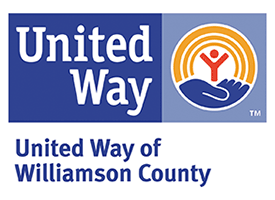Dr. Richard M. Rhodes: The Power of Mentoring

Dr. Richard M. Rhodes: The Power of Mentoring
January is a time of new beginnings, new resolutions, and new goals. At Big Brothers Big Sisters, we use this time of “fresh starts” to recognize the power of mentoring as we celebrate National Mentoring Month.
“An experienced and trusted adviser, someone who gives a younger or less experienced person help and advice over a period of time” – that is the dictionary definition of a mentor. But at BBBS, our mentors, our Bigs, are that and so much more as they build deep, lasting friendships with children that change children’s lives for the better.
We reached out to Dr. Richard Rhodes, Chancellor, Austin Community College District, and member of BBBS’ Advisory Board, to hear his thoughts about the impacts of mentoring, particularly for college-age students.
“It is so critical,” said Dr. Rhodes. “The persistence of students with a mentor is so much higher. Data show they are more likely to stay in school and complete their education. As mentors, that’s our North Star. Education is powerful. The impact of just one student achieving their goals is something that we feel across the community. Their families benefit, and our community at-large feels the impact.”
A native of Alamogordo, New Mexico, Dr. Rhodes has had a close connection with the college world throughout his professional life. He received his bachelor’s degree in Accounting from Alamogordo Community College (a branch of New Mexico State University), while also working in the business office as an intern. After working in the private sector, he served as comptroller at New Mexico State University where he received his master’s degree in educational management and development, and earned his CPA. He then became the Vice President of Finance, and interim President, for El Paso Community College.
Dr. Rhodes received his doctorate from the University of Texas. After serving as the VP of Administration for Salt Lake City Community College, and President for El Paso Community College, “I was fortunate to return to Austin, which I love,” he said. “I’ve been the Chancellor of Austin Community College for 12 years.”
Through it all, “mentoring has been a critical component of my life,” he continued. “Whether I’m talking about my activities in Boy Scouts as a young person or my experiences as an adult, I’ve had life-long mentors who are critical because they offer that safety and security – a confidence – where you can get truthful feedback. I’ve had mentors who have been a part of my life for the last 30 years. I love to get together with them, bounce ideas off them, and get truthful and transparent feedback.”
“I think it’s critical that young people have that safe space as well to get the type of feedback they need to continue to develop as individuals,” he said.
Dr. Rhodes’ early mentors include his father, who was an important role model, as well as other teachers who encouraged him. “I was a young person who didn’t believe I was college material,” he said. “I would call myself a distracted student in high school. But, one of my teachers took an interest in me and nominated me for Boys State, which boosted my confidence. My first year of college I had a professor who helped me believe in myself and gave me the self-confidence to believe that I was college material. They both continued to be mentors to me throughout my college career.”
As he pursued his doctoral studies and professional life, Dr. Rhodes found mentors who made a difference at the time and who continued to have an impact years later. “These are people you trust and people who inspire you…. who stay with you,” he said.
“You know, life gets in the way with every student, especially college students, and especially those who are single parents,” he explained. “They need somebody they can bounce ideas off. They need that person they can reach out to and who is reaching out to them to make sure that they don’t feel like they’re by themselves. That is so critical.”
And what happens when students don’t have a supportive mentor? Are they more likely to stop pursuing their education?
Unfortunately, Dr. Rhodes says, the answer is yes. “If I had my wish, the support network that is necessary would be provided to every student,” he said. “Which means, every single student would have a mentor and the ability to do a paid internship while in college.”
“Education is the gateway to economic prosperity and economic mobility. That gateway, because life gets in the way, is greatly inhibited if you don’t have that mentorship, that person who can give you advice, guidance, and support,” he said.
Students who receive an education in the classroom, who have the chance to gain experience working in the career field they want to get into when they graduate, and who have a mentoring support network are almost certain to succeed, said Rhodes.
And, their success benefits the community as a whole. “What you see with true mentorship is that individual education continues, and workforce opportunities continue, and consequently the economic prosperity of the community continues and increases,” said Rhodes. “It creates an environment where success breeds success.”
“I truly believe that without mentorship in individuals’ lives, that type of thriving community doesn’t exist.”
It’s a reminder that mentors make a difference in lives and in communities.
National Mentoring Month is a good time to remember, and to thank, the mentors in your own life. Then, consider joining BBBS to become a mentor for a young person in our community as well.








